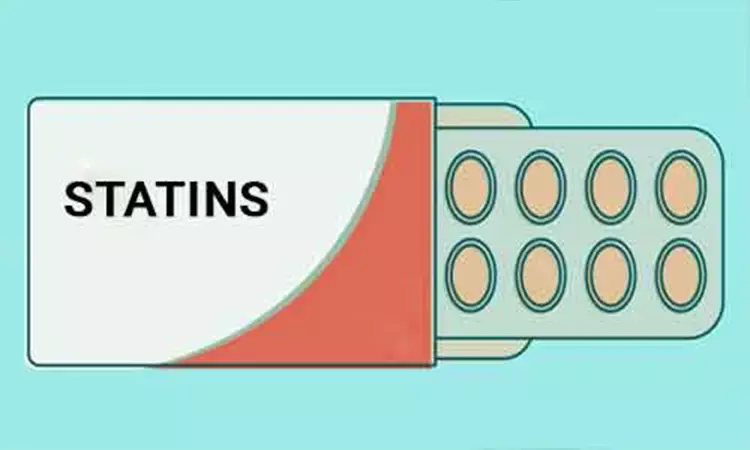- Home
- Medical news & Guidelines
- Anesthesiology
- Cardiology and CTVS
- Critical Care
- Dentistry
- Dermatology
- Diabetes and Endocrinology
- ENT
- Gastroenterology
- Medicine
- Nephrology
- Neurology
- Obstretics-Gynaecology
- Oncology
- Ophthalmology
- Orthopaedics
- Pediatrics-Neonatology
- Psychiatry
- Pulmonology
- Radiology
- Surgery
- Urology
- Laboratory Medicine
- Diet
- Nursing
- Paramedical
- Physiotherapy
- Health news
- Fact Check
- Bone Health Fact Check
- Brain Health Fact Check
- Cancer Related Fact Check
- Child Care Fact Check
- Dental and oral health fact check
- Diabetes and metabolic health fact check
- Diet and Nutrition Fact Check
- Eye and ENT Care Fact Check
- Fitness fact check
- Gut health fact check
- Heart health fact check
- Kidney health fact check
- Medical education fact check
- Men's health fact check
- Respiratory fact check
- Skin and hair care fact check
- Vaccine and Immunization fact check
- Women's health fact check
- AYUSH
- State News
- Andaman and Nicobar Islands
- Andhra Pradesh
- Arunachal Pradesh
- Assam
- Bihar
- Chandigarh
- Chattisgarh
- Dadra and Nagar Haveli
- Daman and Diu
- Delhi
- Goa
- Gujarat
- Haryana
- Himachal Pradesh
- Jammu & Kashmir
- Jharkhand
- Karnataka
- Kerala
- Ladakh
- Lakshadweep
- Madhya Pradesh
- Maharashtra
- Manipur
- Meghalaya
- Mizoram
- Nagaland
- Odisha
- Puducherry
- Punjab
- Rajasthan
- Sikkim
- Tamil Nadu
- Telangana
- Tripura
- Uttar Pradesh
- Uttrakhand
- West Bengal
- Medical Education
- Industry
Statins may reduce risk of death from COVID-19, finds a major population study

Statins are a recommended and common intervention for preventing cardiovascular events by reducing levels of lipoprotein cholesterol in the blood.During the pandemic, it has been debated whether statins influence the risk of death from COVID-19.
Researchers at Karolinska Institutet have now conducted the largest population study to date in the field and found that statin treatment slightly lowers COVID-19 mortality.
The study has been published in PLOS Medicine.
Statins are used to lower the cholesterol level – the lipid count – in the blood and are a common preventative treatment in patients at high risk of cardiovascular events.
During the pandemic, the question of whether statins can reduce COVID-19 mortality via their effects on coagulation and the immune system has engaged scientists and doctors.
Earlier studies have not provided an unequivocal answer and have often suffered from the limitation that they have only included hospital inpatients. Researchers at Karolinska Institutet have now carried out the largest population study to date on the relationship between statins and COVID-19 mortality.
Largest population study
Using data from Swedish registers, the researchers followed 963,876 residents of Stockholm over the age of 45 between March and November 2020. The results are based on analyses of data on the participants' prescribed medication and healthcare and from the Cause of Death Register.
The information was analysed with respect to such factors as diagnosed medical conditions. The results show that statin treatment was associated with a slightly lower risk of dying from COVID-19, a correlation that did not vary significantly among risk groups.
"Our results suggest that statin treatment can have a moderate prophylactic effect on COVID-19 mortality," says co-first author Rita Bergqvist, medical student at Karolinska Institutet.
Randomised studies will be needed to ascertain whether there is a causal relationship, note the researchers.
"All in all, our findings support the continued use of statins for conditions such as cardiovascular disease and high levels of blood lipids in line with current recommendations during the COVID-19 pandemic," says co-first author Viktor Ahlqvist, doctoral student at the Department of Global Public Health, Karolinska Institutet.
One limitation of the study concerns the use of prescription data without the possibility of checking individual drug use. The researchers were also not able to control for risk factors such as smoking and high BMI, only diagnosed health status..
Hina Zahid Joined Medical Dialogue in 2017 with a passion to work as a Reporter. She coordinates with various national and international journals and association and covers all the stories related to Medical guidelines, Medical Journals, rare medical surgeries as well as all the updates in the medical field. Email: editorial@medicaldialogues.in. Contact no. 011-43720751
Dr Kamal Kant Kohli-MBBS, DTCD- a chest specialist with more than 30 years of practice and a flair for writing clinical articles, Dr Kamal Kant Kohli joined Medical Dialogues as a Chief Editor of Medical News. Besides writing articles, as an editor, he proofreads and verifies all the medical content published on Medical Dialogues including those coming from journals, studies,medical conferences,guidelines etc. Email: drkohli@medicaldialogues.in. Contact no. 011-43720751


